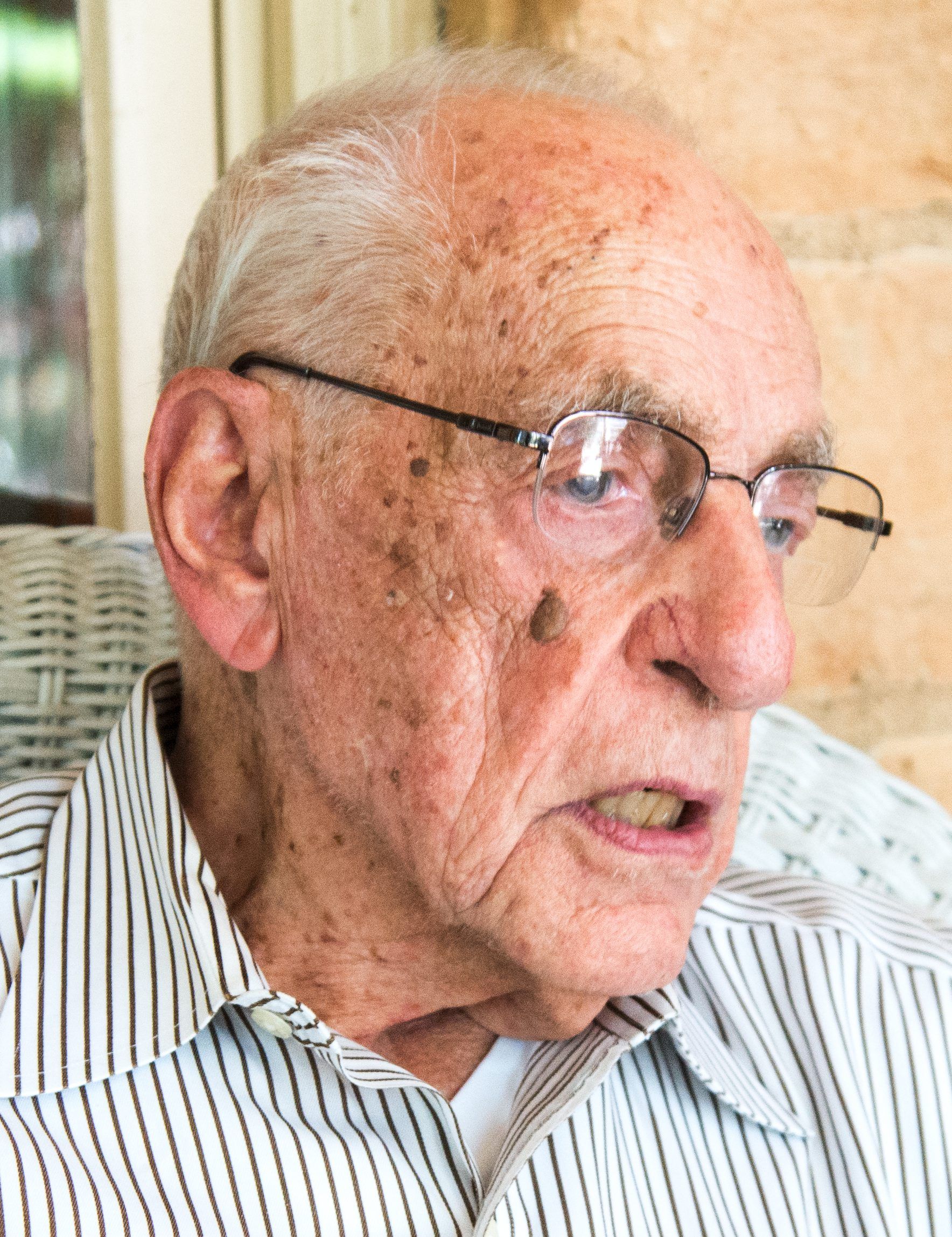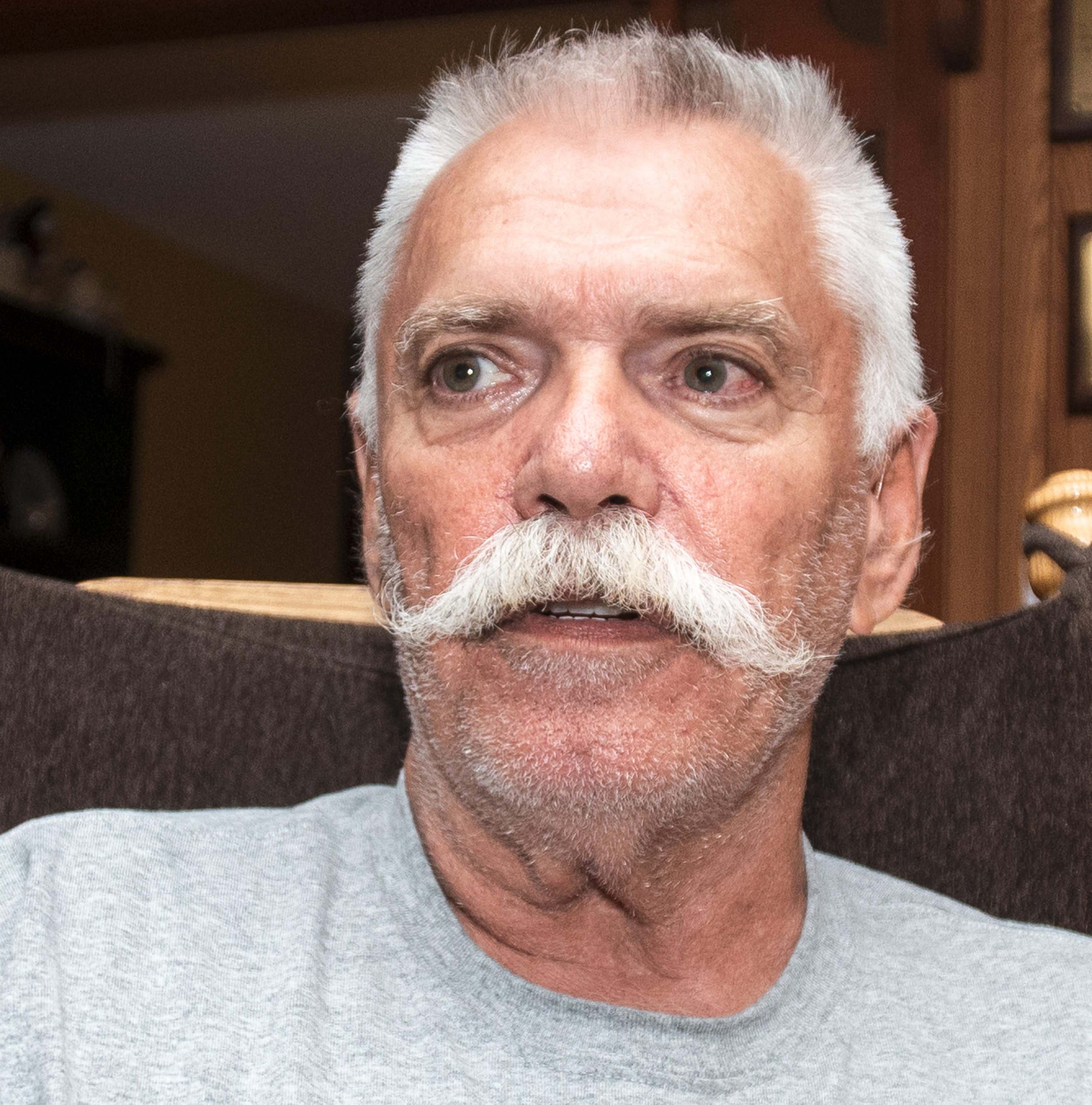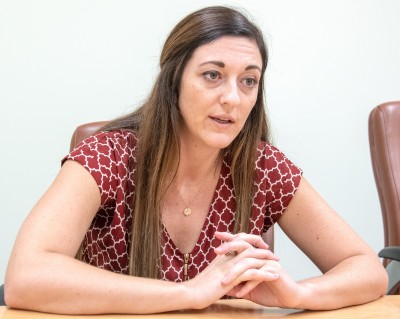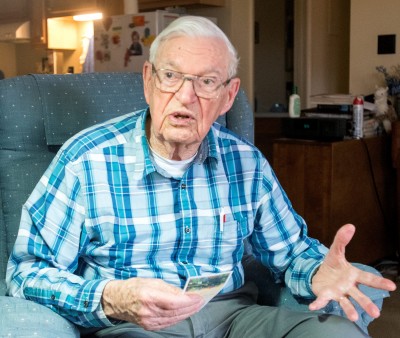Richard Cogdal
By Paul Wood

Photo By Robin Scholz/The News Gazette
URBANA — Besides winning medals for serving at sea off Iwo Jima and Okinawa, Richard Cogdal touched history when he had to report the news that Franklin Delano Roosevelt had died — to the president’s son.
FDR died on April 12, 1945, but it was three days later when Navy Lt. Cogdal, serving as officer of the deck on the USS Makassar Strait, received a wire about his passing.
The president’s son, also named Franklin, was a Marine captain serving about the aircraft carrier.
The cable from Eleanor Roosevelt read “Pa slipped away this morning,” and told his son that he had to carry on with his duties as his father had.
Cogdal relayed it to Roosevelt, who replied simply, “Thank you.”
Cogdal, 98, lives in Urbana, not far from his childhood home, and had a great career in insurance and real estate after World War II.
But during the war, he served two years of dangerous duty in the Pacific.
Cogdal had been an excellent drummer in Urbana’s marching band, which won a national championship, and was recruited to the University of Illinois for its band by A.A. Harding, for whom the band building is now named.
But he majored in finance and accounting, and received two degrees before going to work in Chicago, where he was when the Japanese attacked Pearl Harbor.
“It was a sneak attack,” he says of the bitter memory.
He enlisted in the Navy the next month, but didn’t go off to fight the Japanese right away. He spent two years as an accountant in Washington, D.C., in the ordnance division.
“I had a group of several not-unattractive ladies working for me,” he recalls with a smile.
In early 1944, not long after he got married, Cogdal was posted to USS Makassar Strait, nicknamed “Big Mak.”
The ship was more than 500 feet long with a crew of 860, according to its history website.
It was home to 35 aircraft, Cogdal notes, including F4F Wildcat fighter planes, TBM Avenger torpedo bombers and Corsair dive bombers.
The carrier had more training missions for landings than any other ship in the Navy, over 15,000.
“We had 300 landings a day sometimes,” Cogdal says.
He was on deck a few times when planes crashed on their landing, even hitting the ship’s tower.
“I could tell by the way they were coming in that they weren’t going to make it,” he says.
He was also officer on deck when a Japanese suicide plane, a kamikaze, came close to hitting the ship in April 1945.
The ship’s F4F planes shot the kamikaze down only 800 feet off the port bow, he says.
Cogdal witnessed a ship full of ammunition explode nearby.
Perhaps the most dangerous moment was when a typhoon hit the task force with waves nearly 45 feet tall. His ship’s captain took the unusual — and court-martial-worthy — action of diverting from the fleet.
Cogdal received two Battle Star Medals for Iwo Jima and Okinawa.
At Okinawa and Iwo Jima, the USS Makassar Strait’s planes covered refueling operations at sea.
The air squadron also made strikes at several Japanese bases on the islands.
When the war ended, he was on a tanker heading home. His naval career ended when he landed in San Francisco.
Do you know a veteran who could share a story about military service? Contact staff writer Paul Wood at pwood@news-gazette.com.
Read more stories from local veterans:
 Phil Wilhelm
MAHOMET — Phil Wilhelm’s body still carries within it shrapnel dating to his two tours of duty in Vietnam. The sergeant, …
Phil Wilhelm
MAHOMET — Phil Wilhelm’s body still carries within it shrapnel dating to his two tours of duty in Vietnam. The sergeant, …
 Jeni Hunniecutt
URBANA — The National Guard took Jeni Hunniecutt from being the first college student in her family to six years of serv …
Jeni Hunniecutt
URBANA — The National Guard took Jeni Hunniecutt from being the first college student in her family to six years of serv …
 Fred Finn
MONTICELLO — Fred Finn built roads and landing strips on the island of Okinawa, where Japanese snipers were plentiful. I …
Fred Finn
MONTICELLO — Fred Finn built roads and landing strips on the island of Okinawa, where Japanese snipers were plentiful. I …